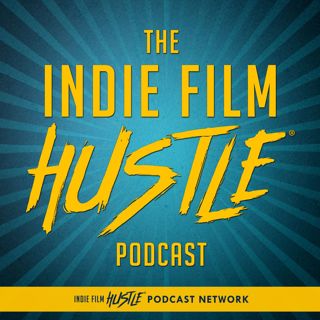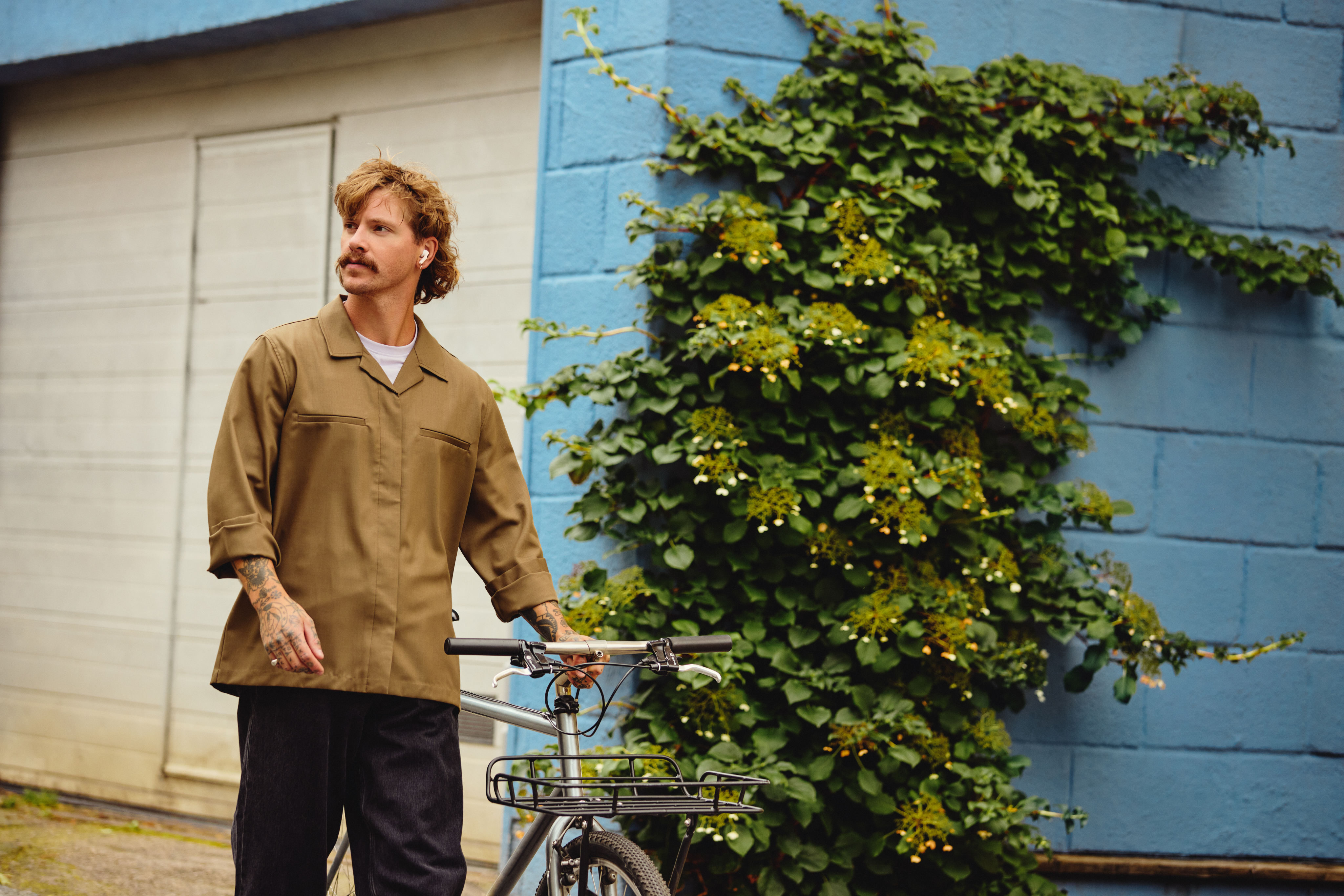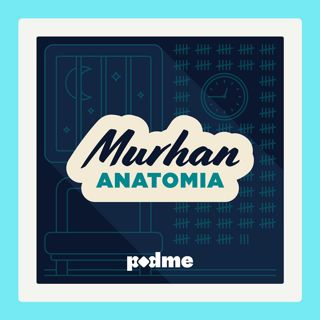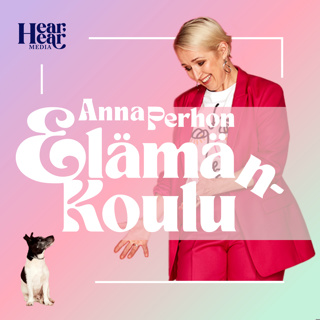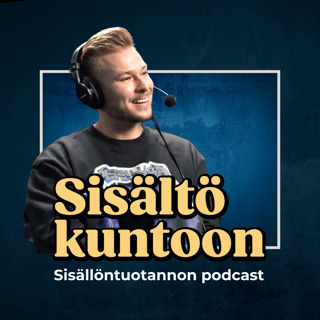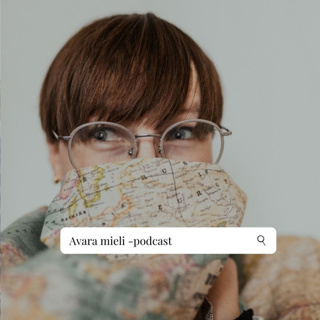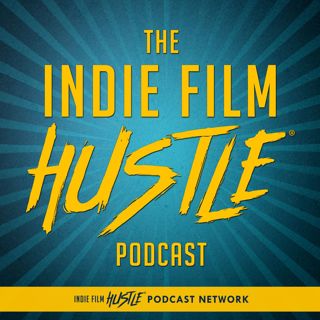
IFH 800: Behind the Scenes of Sharknado: Turning Sci-Fi Madness into Storytelling Gold with Andrew Shaffer
The mind is a curious trickster, delighting in dreams where logic pirouettes in absurdity. In today's extraordinary episode, we welcome Andrew Shaffer, a humorist and New York Times bestselling author whose wit slices through the storms of reality with a twinkle in his eye and a chainsaw in hand. From the earliest pages of his life, Andrew Shaffer was destined to dance with the ridiculous and sublime. As a child, he devoured horror and science fiction with a ravenous appetite, only to find himself drawn back to these imaginative playgrounds after a detour through the hallowed halls of literary fiction. His journey led him, almost inevitably, to the playful chaos of "How to Survive a Sharknado," a manual for the absurd that demands both laughter and preparation.In the dance of ideas, Andrew revealed how the birth of the Sharknado survival guide was as spontaneous as a tornado filled with teeth. Inspired by the original cult film, he offered his humorous talents when Random House and SyFy decided to create a companion book. Imagine being tasked with making flying sharks scientifically plausible; as he put it, "I had to talk to a marine biologist and ask, not could this happen, but how it might happen." It is in such delightfully impossible questions that the spirit of creativity is set loose.Throughout the conversation, there was a beautiful lightness, the kind one finds when nonsense is taken seriously. Andrew's research involved binge-watching over 30 sci-fi films—some genuine, some fabricated solely for the book—to weave an interconnected universe of mayhem. When asked how one might survive a Sharknado, he smiled into the void and said, “The answer in the book is simple: Stand and fight. Grab a chainsaw.” It is a lesson not just for storms of sharks, but for all the monstrous whirlwinds that life throws at us. Yet beneath the chuckles and chainsaws, Andrew's words echoed a deeper wisdom. Too much meta-awareness, he warned, robs a story of its soul. "If everybody's in on the joke," he said, "then the joke itself isn’t that funny anymore." Ah, but isn’t that true of life itself? When we cling too tightly to cleverness, we risk missing the raw wonder that makes each absurdity luminous. Perhaps the most chilling revelation of the day was the invincibility of the ghost shark, a creature birthed from sci-fi chaos. Manifesting from toilets, swimming pools, and even water bottles, it served as a reminder: some forces cannot be outrun; they must be met with courage, humor, and an open heart.Become a supporter of this podcast: https://www.spreaker.com/podcast/indie-film-hustle-a-filmmaking-podcast--2664729/support.
29 Huhti 27min

IFH 799: What Every Indie Filmmaker Can Learn from a $5K Zombie Movie with Bojan Dulabic
A spark of madness is often the first step toward creation. On today’s episode, we welcome Bojan Dulabic, a passionate Vancouver-based filmmaker who pulled off a small miracle—he made a full-length zombie movie for just $5,000. But this isn't just a story of budgeting brilliance; it's a tale of relentless passion, artistic vision, and the kind of self-taught wisdom you can't get in film school.Born in Bosnia, raised in Germany and Croatia, and finally settled in Canada, Bojan Dulabic’s journey into filmmaking is stitched together by war, displacement, and a child’s fascination with VHS tapes in his mother’s shop. His early life sounds like something out of a global coming-of-age novel. And perhaps that nomadic upbringing seeded in him a gift for observation—a key trait in any great storyteller. When he finally turned his teenage creativity into a film project in high school, something clicked. Not just the shutter on a camera, but the internal compass of a man who knew he had to follow the path of cinema, even if it meant doing it on his own terms.This wasn’t a journey paved in gold. His first feature, shot for $4,000, was a comedy that taught him the ropes. His follow-up? A feature-length zombie film titled Project Eugenics.What could have been a cliché genre dive instead becomes a thoughtful narrative on misinformation, the chaos of modern life, and yes—zombies as metaphors. “To me, a zombie flick... it's not about the zombies. It's always about something else,” Bojan reflects. In his hands, the walking dead become symbols of mass confusion, manipulation, and the blurred lines of truth in our hyper-connected world.There is a playful seriousness to Bojan’s philosophy. He reveres Romero and admires Rodriguez, but he walks his own road. Like Alan Watts would muse about the dancer and the dance, Bojan seems less concerned with final outcomes and more with being in the creative flow—tripping over obstacles and finding meaning in the madness. He shares stories of juggling a wedding, a tight shooting schedule, and DIY visual effects like a magician with duct tape. His secret? A mindset that embraces “safe confusion”—a term borrowed from Tarantino—that invites the audience into mystery without losing them.What’s more, Bojan brings a rare humility to the table. He speaks about his cast and crew with deep respect, understanding that low-budget filmmaking doesn’t give you the license to burn out others for your dream. His actors often worked just a few days, each scene scheduled with precision. His respect for time, energy, and goodwill may be the real reason his film came together. For him, filmmaking is not just a creative act but a spiritual contract—with himself, with his collaborators, and with the audience.This podcast isn’t just a technical breakdown of low-budget indie cinema. It’s a spiritual blueprint for artists who feel the fire but lack the funds. Bojan’s approach is radical because it’s so simple: take stock of what you have, and build from there. Whether it’s stock footage, free VFX plugins, or your friend’s living room—use it. More importantly, finish it. Don’t wait for permission. Make your movie now.Become a supporter of this podcast: https://www.spreaker.com/podcast/indie-film-hustle-a-filmmaking-podcast--2664729/support.
22 Huhti 1h 27min

IFH 798: From Pills to Pictures: Cynthia Hill's Unlikely Path to Documentary Filmmaking
Cynthia Hill, a filmmaker from North Carolina, discussed her journey from pharmacy school to filmmaking, highlighting her documentaries "Tobacco Money," "Private Violence," and the upcoming eight-part series "Road to Race Day" on NASCAR. She emphasized the importance of storytelling and character development, sharing her experiences with funding through foundations and the challenges of balancing art and business. Cynthia's work often bridges gaps between different communities, such as her documentaries on tobacco farming and farm workers. She also discussed the unique access she had to NASCAR teams, particularly Hendrick Motorsports, and the impact of her films on audience understanding.Become a supporter of this podcast: https://www.spreaker.com/podcast/indie-film-hustle-a-filmmaking-podcast--2664729/support.
15 Huhti 56min

IFH 797: From Instagram Mysteries to Indie Horror: The Bold Experiments of Joe Kowalski
When the winds of curiosity rustle the mind and stir the soul, they often bring with them storytellers—those rare beings who don’t just recount events but breathe life into them. On today's episode, we welcome Joe Kowalski, a young filmmaker from Cleveland whose creative spirit dances between shadows and light, weaving stories through film, mystery, and innovation.Joe Kowalski is a filmmaker, game designer, and storyteller whose projects explore new ways to experience narrative across media.In this profound conversation, we journey through Joe's unique endeavor—a Stephen King “Dollar Baby” short film adaptation titled I Am the Doorway. What begins as a seemingly simple homage to the horror maestro evolves into a lesson in humility, time management, and artistic vision. Joe’s choice of story, influenced by a girlfriend and the limitations of a shoestring budget, was no accident. It was a study in resourcefulness—making the most of what one has while honoring a source of immense creative power. “You have to know what you can realistically accomplish,” Joe said. And that, my friends, is wisdom beyond years.Joe didn’t stop at simply retelling a tale. He reframed the horror classic into a new cinematic experience, wrapping Stephen King’s suspense within a short film festival format. This wasn’t about profit or prestige—it was about community, experimentation, and delivering value to the audience. His respect for the time and effort of collaborators is unwavering: “That’s the biggest thing they can give you,” he mused. And in a world obsessed with the bottom line, such reverence is sacred.But his imagination doesn’t remain tethered to the screen. Joe designed an interactive Instagram murder mystery game—an elegant rebellion against linear storytelling. Through a labyrinth of tags and grids, players navigate a digital whodunit, one clue at a time. Each piece of the game reveals not just a path to the culprit, but a deeper truth about human curiosity and our hunger for connection. It’s a digital scavenger hunt of intention, ingenuity, and play. A new mythology told in swipes and likes.Lest one believe that his path has been frictionless, Joe admits to the chaos of low-budget production, the stress of festivals, and the heartbreak of seeing good work shelved for lack of fit. Still, he views each project as a sculptor views stone—not yet perfect, but perfecting. His year-long film PRISM is another feather in this vibrant cap—a color-coded exploration of identity and emotional entanglement told through color-isolated cinematography. Here is a man who does not merely shoot films; he paints them.Throughout the conversation, what resounds most is Joe’s blend of youthful energy and ancient patience. He reveres the creative process, yet he’s unafraid to let go when the time calls for it. Whether planning podcasts with friends or studying the rise of VR storytelling, Joe doesn’t merely chase the next trend—he studies its rhythm, its heartbeat, and asks how it might elevate human experience. “You have to care about the story even when you don’t feel like caring about it,” he says—and that is the quiet devotion of an artist in bloom.Become a supporter of this podcast: https://www.spreaker.com/podcast/indie-film-hustle-a-filmmaking-podcast--2664729/support.
8 Huhti 1h 10min

IFH 796: No Film School, No Problem: Gary King's Journey of Grit and Creativity
Gary King is a filmmaker who transitioned from a career in psychology and human resources to independent cinema, building a body of work that balances heart, hustle, and deeply human storytelling.In the spirit of Taoist unpredictability, Gary’s story unfolds not as a straight line, but as a rich weave of intuition, risk, and creative alignment. He didn’t attend film school—not out of rebellion, but because he didn’t know it existed as a real path. Yet, what he lacked in formal education, he made up for in lived experience, teaching himself the craft by actually making films. From his first feature "New York Lately" to a haunting indie gem titled "Among Us," his journey is a testament to following that subtle inner pull, even when it defies logic or convention.What stood out most was Gary's devotion to character.He didn’t chase Hollywood formulas or pre-packaged three-act structures. Instead, he sculpted stories that breathe. Stories that fail and rise again. He spoke of actors, not as tools to carry his vision, but as living beings whose rhythms dictate the energy of a scene. “The first take might be gold for one actor, but the sixth take is where another actor finds their truth,” he said. That kind of awareness doesn’t come from reading screenwriting manuals. It comes from presence.It’s no surprise that Gary gravitated toward stories with strong female leads. His commitment to representation isn't a gimmick—it’s a reflection of his own lived dynamics. He and his wife uprooted their lives together, and it was her faith in him that seeded the beginning of his filmmaking path. When he pitched the idea of becoming a director, her response wasn’t fear—it was, “Okay, how do we make this happen?”Every film Gary makes becomes his personal film school. No gatekeeping. No pedigree. Just the camera, the actor, the breath of a moment, and the sacred chaos of the edit room.One of the most beautiful sentiments he shared was how universal pain is the bridge to empathy. “You can tell a story about a Broadway dancer who never makes it, and someone who’s never danced a day in their life will see themselves in that struggle.”And while his films may not be backed by million-dollar budgets or high-concept gimmicks, they pulse with something far rarer: authenticity. A humility that says, “I’m still learning.” A clarity that says, “This is who I am.” And perhaps most importantly, a humor that says, “Yes, I returned a porno tape to Blockbuster by accident, and no, I don’t regret it.”Become a supporter of this podcast: https://www.spreaker.com/podcast/indie-film-hustle-a-filmmaking-podcast--2664729/support.
1 Huhti 1h 13min

IFH 795: Balancing Hollywood Productions and Indie Passion Projects with Jamie Buckner
Some stories unfold not with a bang, but with the echo of a bowling ball rolling down a waxed lane—steady, unpredictable, and brimming with hidden intention. On today’s episode, we welcome a filmmaker whose journey is stitched together with sweat-soaked call sheets, stubborn creative grit, and a romance with storytelling that stretches back to a Sunglass Hut in Cincinnati. Jamie Buckner is a writer, director, and production coordinator who took a simple idea—a romantic comedy set in a bowling alley—and transformed it into a heartfelt indie film with an uncanny twin name.What unfolds in this conversation is not just the tale of a film called Split, but the soul of a storyteller who refused to let his creative voice be muffled by the chaos of working behind the scenes on massive Hollywood productions.Jamie shares how he stitched together moments between 14-hour workdays, late-night office hours, and endless sets to keep rewriting, reworking, and resurrecting the script for Split. “The creative muscle will atrophy if you don’t exercise it,” he says. In that moment, you understand that this is no ordinary guest; this is someone for whom storytelling is oxygen.His story reads like a modern parable for artists. From early days bouncing between dreams of music, architecture, and comic books, Jamie landed on film—not by plan, but by epiphany. He describes it beautifully, realizing that all his interests merged in filmmaking, the perfect cocktail of drawing, sound, emotion, and movement. And thus began the pilgrimage: extra work on Seabiscuit, gigs on War of the Worlds, and a life that kept knocking until the door opened just enough to let the artist through.But the magic, as it often does, lived in the in-between. While others went to happy hour, Jamie stayed late in the office to write. While his peers chased security in crew roles, he wrestled with Kickstarter campaigns, coordinated sizzle reels (or “proof of concept” pieces, as he prefers), and asked himself the questions that every creative must ask: "Will I do this until I’m sixty and just look back, or will I carve out the time now?" He chose the latter—and Split was born.There’s something charming about how he talks of making “a cute little bowling movie,” while casually referencing that its short film starred future television stars. It’s clear he walks both worlds with ease: the guy who’s worked on John Wick 2, and the indie soul who still geeks out about local comic shops. He’s aware of the absurdity too: that his film shares its name with M. Night Shyamalan’s thriller. He laughs about mistaken identities, mistaken downloads, and audience confusion, but stands firm. "We were here first," he says. And in that defiant simplicity lies the heart of a creator.Jamie’s approach to art is like that of a Zen archer—disciplined but loose, always aiming, never rigid. He offers a quiet but potent kind of wisdom, the kind that doesn’t shout but sticks with you. “If you're not doing this because you love it, then you're legitimately a crazy person,” he jokes. And yet, one feels the profound truth in those words. In a world spinning faster each day, where even scripts get locked down like government secrets, Jamie reminds us that what matters is finishing what you start—and doing it with heart.Like a good film, Jamie Buckner's journey doesn't resolve in neat lines. It's ongoing, filled with projects still to be written, scenes yet to be shot, and audiences still to discover the little movie that could. But what stays with you is not the resume or the name confusion. It’s the voice behind the words, the love behind the lens. He’s not just telling a story—he’s reminding you why stories matter.Become a supporter of this podcast: https://www.spreaker.com/podcast/indie-film-hustle-a-filmmaking-podcast--2664729/support.
25 Maalis 1h 11min

IFH 794: The Art of Film Marketing: How to Make Your Movie Impossible to Ignore with Danielle Raiz
A blank canvas. A single frame. The quiet hum before a film breathes life into a screen. But what happens after the final cut? How does a filmmaker's vision transcend the void and reach the hearts and minds of an audience? Today, we unravel this mystery with Danielle Raiz, a passionate advocate for creatives, whose work at Wix has been dedicated to empowering filmmakers and video creators.In this boundless digital age, content creation has become more than just an art—it is a language, a currency, a revolution.Danielle Raiz reminds us that the modern filmmaker is no longer a mere artist but an entrepreneur, an architect of their own cinematic empire. She shares how filmmakers can harness websites, digital marketing, and audience engagement to elevate their craft beyond the screen. "You have to engage with your viewers even before you start filming," she emphasizes. "You build your own website, create a teaser, and start talking to your fans. You share behind the scenes, updates, and teasers to create a buzz before your film is even out."A film, like a tree in the forest, may not make a sound if no one is there to hear it. Gone are the days when a filmmaker could rely solely on festivals and distributors. The power has shifted. Now, with tools like Wix, a filmmaker can craft their own digital home—a place where their work is presented with intention, where it is not merely another flickering light in the vast, crowded universe of content. The key is in visibility. "Your site is really your business card," Danielle Raiz explains. "When people talk to you, they'll Google your name. If they find a professional, beautiful online presence, it reflects on how they see your work."It is no longer enough to create; one must cultivate. Cultivate an audience, a brand, a presence. Marketing is not a necessary evil; it is an extension of the story itself. The best marketing does not feel like marketing at all—it is storytelling, an invitation, an experience.Danielle Raiz speaks of how major brands have already embraced this, turning advertisements into compelling short films. The lesson for filmmakers? Market your work as you would craft a scene—thoughtfully, purposefully, beautifully.Yet, beyond the artistry of marketing lies a fundamental truth: control. "For a long time, video creators had to play by the rules of streaming platforms," she says. "Now, everyone is chasing after great content creators. You have the power. You control the way your work is displayed, monetized, and shared. And that is an exciting time to be a filmmaker."We live in a time where technology shifts at the speed of thought. Virtual reality, interactive storytelling, live engagement—these are no longer distant dreams but tools at our fingertips. The game is no longer about who gets a seat at the table; it is about those who build their own table. And in this unfolding cinematic future, those who understand both art and strategy will rise.Become a supporter of this podcast: https://www.spreaker.com/podcast/indie-film-hustle-a-filmmaking-podcast--2664729/support.
18 Maalis 33min

IFH 793: Comedy, Confidence, and the Art of Reinvention with Rhonda Shear
Some moments in life are stitched together like the seams of a well-loved garment, their fabric woven with laughter, reinvention, and a refusal to let the world dictate what is possible. On today's episode, we welcome Rhonda Shear, a woman who embodies this spirit of transformation with a playful wink and an unstoppable drive. Many remember her as the effervescent host of USA Up All Night, where she brought an entire generation into the cult world of late-night B-movies, but her journey extends far beyond the glow of a television screen.Rhonda Shear is an actress, comedian, entrepreneur, and accidental feminist, though “accidental” may not quite capture the intentionality with which she has shaped her life. Her story arcs from the glitz of Hollywood to the entrepreneurial success of her intimate apparel empire, with plenty of misadventures and revelations in between. She grew up in New Orleans, a city that instilled in her a sense of pageantry and performance, leading her from beauty pageants to acting, stand-up comedy, and ultimately, to building the number one selling bra in the world, the Ahh Bra.From the outside, her career may look like a sequence of lucky breaks, but Rhonda speaks to something deeper—the power of embracing reinvention without losing authenticity. Hollywood tried to confine her to a singular image, the bubbly blonde bombshell, but she turned it into her own brand of comedy, injecting intelligence into satire and challenging expectations. “People told me, ‘You can’t be sexy and be funny.’ And I said, ‘Watch me,’” she recalls.Her experiences in the entertainment industry—auditioning against preconceived notions, breaking into stand-up at a time when female comedians were still a rarity, and later navigating the world of business—illustrate the universal lesson that one does not have to be what the world expects. Rhonda's path has been a testament to self-creation, a refusal to be boxed in by labels. In her book Up All Night: From Hollywood Bombshell to Lingerie Mogul, she shares the lessons gleaned from a life spent dancing between entertainment and entrepreneurship, always with an eye on what’s next.One of the most refreshing things about Rhonda is her unwillingness to bow to negativity. When the reality TV industry came knocking, hoping to manufacture conflict in her life, she turned them down. “I don’t do drama,” she says. “I don’t need to create problems where there are none.” This philosophy extends into her approach to life and business—where others see obstacles, she sees opportunities. Whether it’s transitioning from comedy to commerce or proving that reinvention is possible at any stage of life, Shear radiates the certainty that success is about mindset as much as talent.Her journey isn't just about professional transformation; it’s about love, too. In a twist straight out of a romantic comedy, she reunited with her high school sweetheart decades later, and together they built an empire. Their story reminds us that some things are destined to find their way back to us, no matter how much time has passed.Life, as Rhonda Shear so effortlessly demonstrates, is about embracing every chapter with humor and grace. The journey from late-night TV to the boardroom isn’t as unlikely as it seems—it’s simply the next scene in a story written by someone unwilling to accept limitations.Become a supporter of this podcast: https://www.spreaker.com/podcast/indie-film-hustle-a-filmmaking-podcast--2664729/support.
11 Maalis 57min
